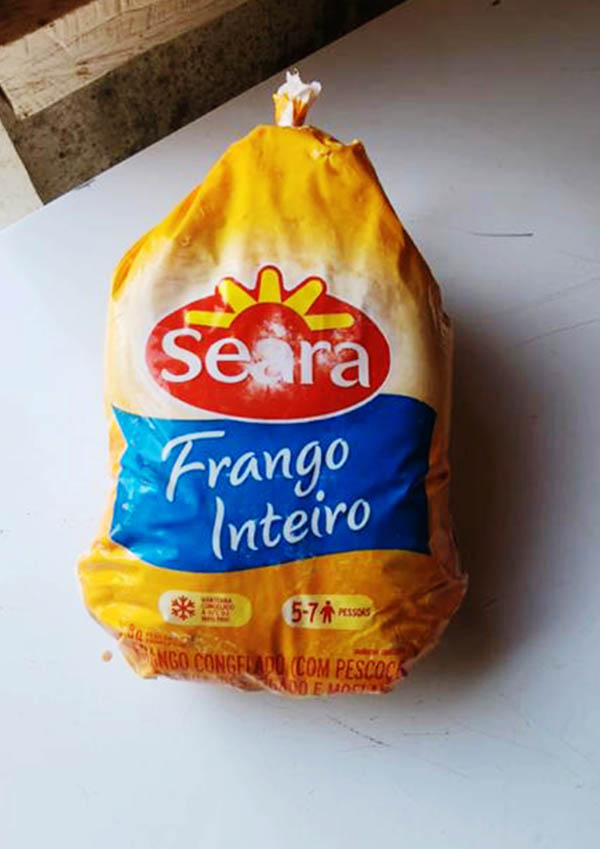Poultry farmers in Mahai-cony in Region Five are pleading with the Ministry of Agriculture to intervene to stem the importation/ smuggling of chicken into Guyana which they say is resulting in reduced sales for them in the local markets.
The Sunday Stabroek spoke to two of the farmers on Friday and they stated that it has been difficult for them to compete with businesses which have been importing and smuggling their poultry from neighbouring Brazil.
According to Mark Ross, who has been a poultry farmer for many years, persons are mostly rushing to purchase the imported chicken since it is being sold at a lower price compared to the locally reared variety. He explained that they cannot decrease their prices to match the imported ones since rearing poultry locally is comparatively expensive.
“Persons killing their own local farmers because they are importing their chicken from Brazil and selling it back for a lower price than ours, but we local farmers can’t do anything about it because we can’t sell our chicken at a much lower price when feed and those things gone up.”
Ross said that he currently has approximately 10,000 birds in his poultry farm which are ready to be sold but hardly gets sales due to the quantity of the imported ones on the market. The man is imploring the government to step in and deal with the matter since local farmers are suffering great losses at the hands of other Guyanese vendors and businesses who choose to import and even smuggle their chicken.
He stated that a meeting was held with the Minister of Agriculture, Zulfikar Mustapha, months ago and he had promised to look into the matter, and to call another meeting to address the interventions but nothing has since been done.
Meanwhile, another farmer who wished not to be named, told the Sunday Stabroek that they have received word from a source at the Guyana Revenue Authority (GRA) that persons are still being issued licences to import chicken.
“We heard that persons are being issued licences to import these chickens from Brazil and although we were told by the Minister that it isn’t so, we did our own little investigation and we received confirmation from sources that indeed these licences are still being given to persons”, the farmer said.
The farmer who has been in the poultry business for more than 15 years said that he is pleading with the government to revoke some of those reported licences. “So we’re asking the government to help us local farmers out by revoking these licences because we are really finding it hard to sell our chicken because we can’t compete with the price of the chicken that persons importing and because of that, actually everybody running to buy the imported chicken because it much cheaper.”
He stated that he currently rears 17,000 chickens which are also not being sold as much as they used to. According to him, local poultry farmers usually sell plucked chicken for $400 per pound while persons who import theirs, sell for $340 per pound.
This newspaper last week reported that the Guyana Poultry Producers Association (GPPA) had called on the government to urgently intervene to interdict chicken smuggling which was said to be ongoing over the country’s eastern and southern borders. The GRA had confirmed that they were also aware of the issue.
A release from the GPPA had said, “Poultry producers are concerned about increased smuggling activities. It is affecting investments in the local industry as planning and forecasting becomes very difficult, even the importation of hatching eggs becomes hard to plan leading to shortages and decline in local production. In consequence, smuggling activities is disruptive to our national and regional goals of achieving food security.”
GRA Commissioner-General, Godfrey Statia, had subsequently told this newspaper that the agency was aware of complaints of smuggling and that they were investigating them.
A source had explained that to offset the high chicken demand during the Christmas season, import licences were issued to some business persons. However, those licences covered a certain quota and were only valid for a specified period.




